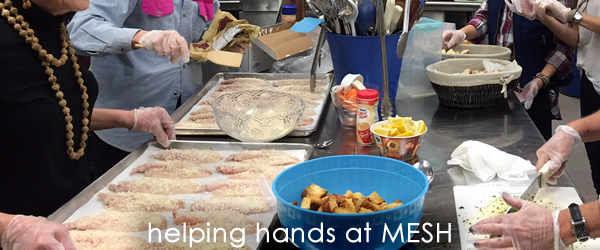Parashat Vayiqra
Leviticus 1:1 – 5:26
The third, middle, book of the Torah begins with this portion. It has God calling to Moses to come into the Tabernacle so that God might teach Moses the rules of the system of sacrifices that Moses will, in turn, teach all of Israel. Immediately we begin to hear about different types of sacrifices.
Sacrifices were offerings to God brought by individuals or by the collective. Our Torah portion begins by speaking of individual offerings that are entirely voluntary in motivation. It is only after God describes numerous offerings that a person might wish to bring of their own accord that God moves on to talk about obligatory sacrifices.
This fits a pattern that we have encountered before. The very construction of the Tabernacle was also first established upon voluntary gifts and only afterwards maintained by mandated dues. The voluntary gifts came from only those individuals whose hearts were so moved. But the obligatory contributions were collected from the entire community. In our portion, also, the first sacrifices dealt with are of only those individuals who are so moved to offer them. Only after they are mentioned does the Torah acknowledge that there are sacrifices that may be called for as obligations on behalf of the community.
The Torah works with two dyads that live in dialectical tension – the individual and the collective, and freedom and obligation. The terms of these dyads tend to clash with each other. For example, an individual may feel burdened by communally placed obligations that negate their sense of freedom. But the Torah, in placing voluntary gifts before obligatory ones, also suggests that the authoritative force of the community requires freely chosen commitments of special individuals in order come into existence. And, once created, the collective produces the possibility for generous hearted individuals to freely give of themselves to a cause greater and more holy than themselves. In sacred dreams of freedom begin responsibilities.
Shabbat Shalom,
Rabbi David Greenstein
![]()
Subscribe to Rabbi Greenstein’s weekly d’var Torah
For another commentary on this portion by Rabbi Greenstein, published by T’ruah: the rabbinic call for human rights, see – http://www.truah.org/resources/when-a-leader-sins/
Image: “MESH Cafe at Shomrei” by Lynne Kurzweil used with permission.
- Toby Stein: In Memoriam - Thu, Feb 8, 2024
- Faithfulness and Hope: Parashat Sh’lach - Thu, Jun 23, 2022
- Past Their Prime: Parashat B’ha`a lot’kha - Thu, Jun 16, 2022

